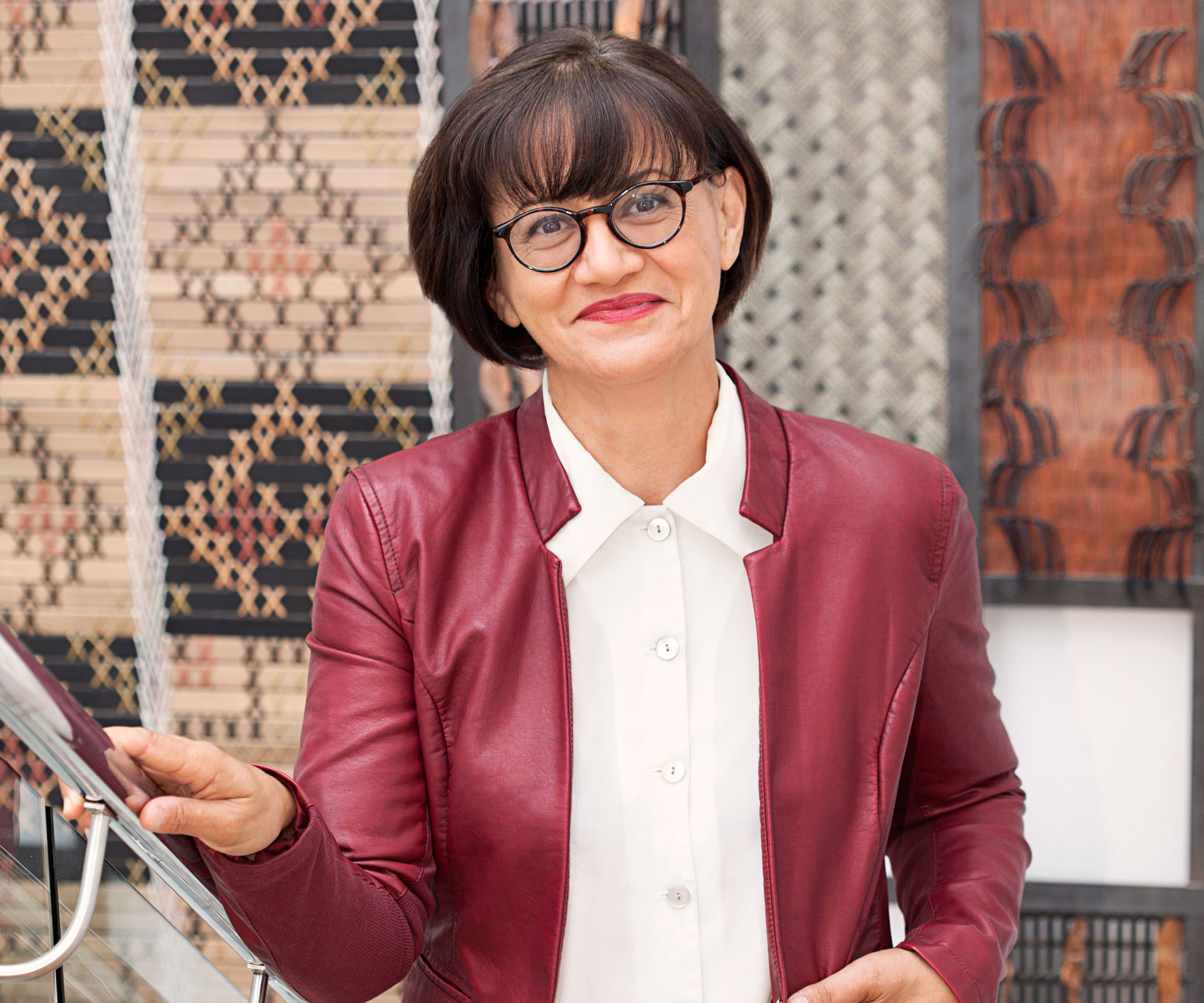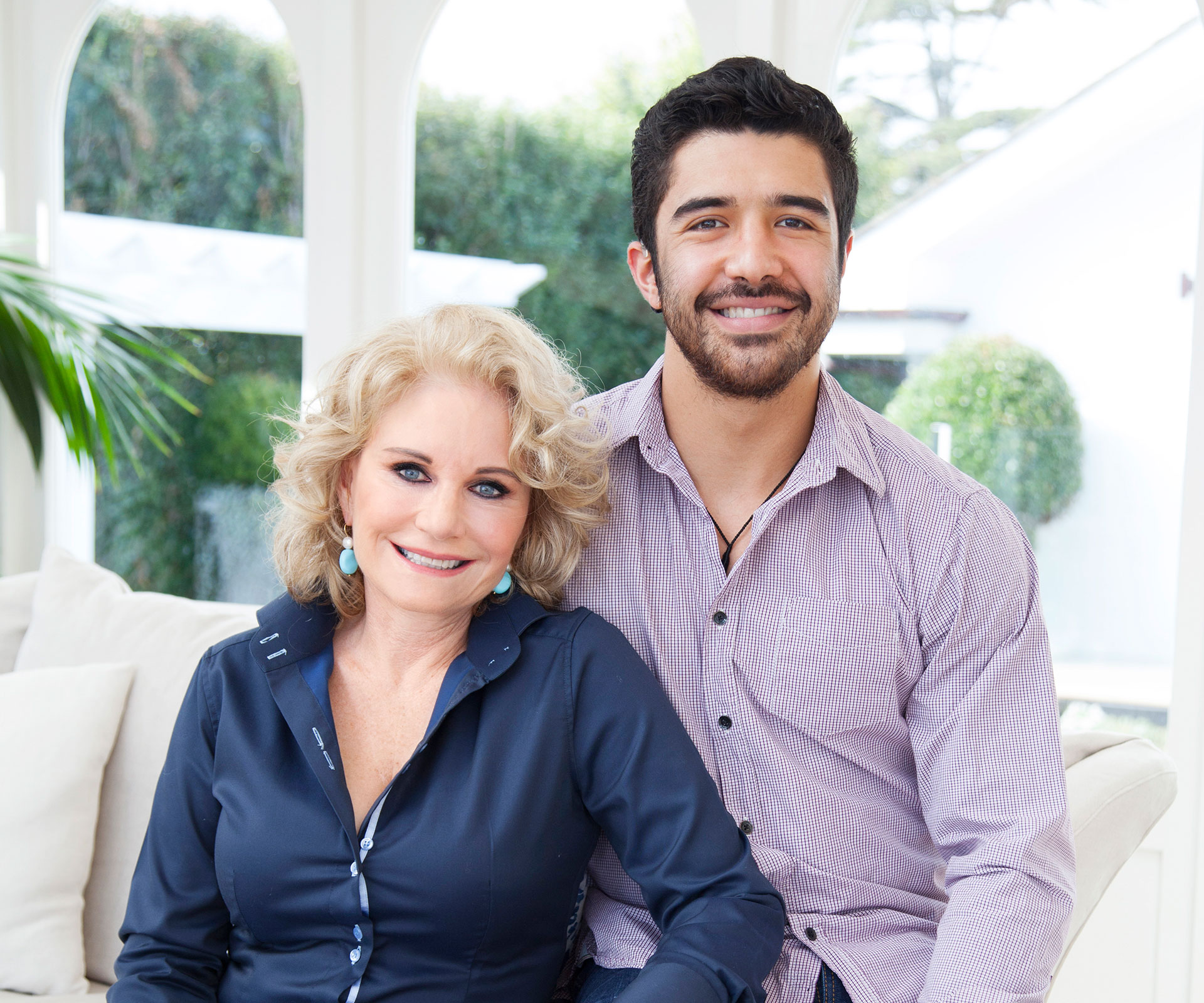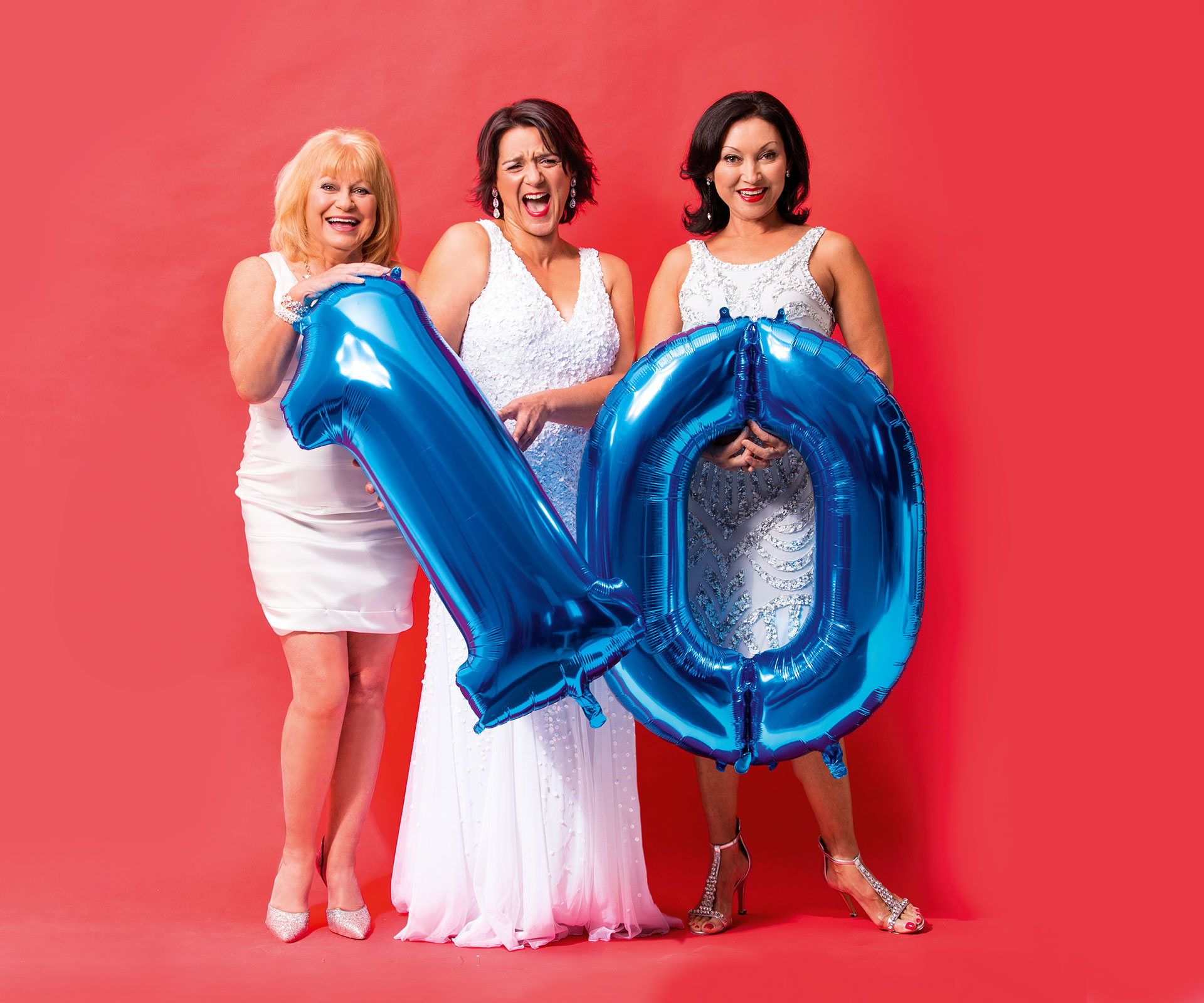“This is a series of articles about women who inspire me. Some of them I have known for some time, others I have admired from a distance over the years. All share the same characteristics. They are warm, kind, courageous, fun-loving people. They are generous of spirit and they are supportive of other women.” – Judy Bailey
One of Wena Harawira’s earliest memories is of her mother weeping as she gave up the youngest of her four daughters as a whangai for a relative. Wena was eight at the time and her baby sister was six weeks old.
Whangai is a common cultural practice among Maori, where children are given to extended family or friends to be brought up as their own – but, as Wena says sadly, it is rarely done without tears.
Her mother was culturally obliged to give her daughter away. It’s a painful story, but it speaks volumes about the Harawira family – a strong Maori whanau where traditional values are held in high regard.
I first came to know Wena 10 years ago, as we hunkered down trying to get a handle on our first crack at Maori Television’s now iconic Anzac broadcast. It was midnight. The scripts weren’t ready. We were due at the studio in four hours. We’d never worked together before, but were about to co-host, live, for 18 hours.
It was daunting. I am a control freak – I like to know what’s coming up so I can prepare for it. Wena is more willing to figure it out as she goes. She has a quiet confidence, she’s a quick thinker, a consummate broadcaster. I trusted her; she knew it would work and it did.
We’ve since fronted most of Maori Television’s Anzac coverage together. Nothing’s ever a problem. She is warm, generous and quick to see the humour in any situation. It’s easy to see why her peers hold her in such high regard.
The 51-year-old grew up in Taupo, where her dad worked at the local sawmill and her mother was a high school teacher as well as an activist and political mover and shaker. It was a blissful childhood, with long, carefree summers spent fishing and swimming. It’s this background that makes Wena so distressed over Maori prominence in child abuse statistics.
“It was a rude awakening when I later discovered that Maori were less than well regarded for their child rearing,” the mum-of-two admits.
The values her parents instilled in Wena have been impressed on her own children: “Hard work, independence, the importance of family and always thinking about how you can help your people.”
When Wena’s sister Hana was diagnosed with cancer, Wena nursed her until her death earlier this year. They are a tight-knit clan the Harawiras; they have now all moved back to their family hometown, Taneatua in the Bay of Plenty, to continue Hana’s legacy by running Te Kaokao O Takapau.
A tribal health service launched by Hana 20 years ago, it provides primary care, disability support, training and health promotion. “I quit my job at Maori Television when Hana got sick, and became an acting manager,” explains the former head of news, who helped set up the TV station.

Wena, far left, with Maori TV’s Anzac co-presenters Judy Bailey and Tainui Stephens.
“Whatever family does, you get behind it 100 per cent.” The family also runs a tribal festival every two years that includes kapa haka, sports and debates. The idea is to entice young Tuhoe home, to reconnect with their roots.
Listening to Wena’s distinctive honeyed tones as she talks passionately about her family, I’m reminded of one of the reasons she is such a gifted broadcaster. She never planned to be a journalist.
“My career was decided for me,” she tells me wryly. It was launched after Sir Howard Morrison visited Taupo recruiting for Radio New Zealand, and Wena’s parents put their outspoken daughter forward as a candidate. Before she knew it, a 17-year-old Wena was at Radio 2ZG in Gisborne starting her first job.
It wasn’t long before her broadcasting career took off, and two years later Wena was invited to join TVNZ’s fledgling Maori language news programme Te Karere, alongside legendary broadcasters Whai Ngata, Derek Fox and Purewa Biddle. She felt out of her depth.
She was the first woman reporter on the show, she felt her Maori wasn’t up to scratch and she was new to the craft of television writing. “I worked hard to find my own feet because I didn’t want to be a burden,” she recalls. At just 19 years old, she felt she wasn’t taken seriously.
“Mana is especially important in Maoridom and out in the field some people were particularly intimidating.”
However, she stuck at it with her own brand of warmth and determination, and soon won over the naysayers, going on to become a trailblazer for Maori women in the media industry. A savvy journalist and documentary maker, she has long been a mentor to a new generation of storytellers.
Wena’s time on Te Karere marked a turning point in her personal life too, as she and Derek Fox fell in love. Their 12-year romance produced two children, son Rangitane, now 27, and daughter Mahina, 26. When the couple broke up in 1994, Wena raised the kids on her own, juggling motherhood with commuting to Auckland to work at Maori Television. She now has two grandchildren – a son by each of her children.
“They all live in Taneatua,” Wena says. “I tell my kids my mokopuna [grandchildren] need to be around their nanny so I can imprint myself on them!”
There is no man in her life now. “I’m far too inflexible and set in my ways,” she jokes.
The extended Harawira family were among those targeted in the infamous Urewera armed police raids in 2007. The police said they were looking for terrorists, and have since apologised for the way the raids were carried out. It’s an incident which Wena, who is no relation to politician Hone Harawira, says has had a lasting effect.
“A lot of our kids were traumatised by the raids,” she says. “The tribe wanted psychological help but none has been offered. Because of that our teens have reacted badly, they have no trust and no respect for the police. [The police] reinforced the mistrust that existed in the tribe. A lot of our families just don’t trust outsiders.”
Despite her family’s involvement in activism, Wena has never been on a protest march.
“My activism comes through my work – pushing to shift attitudes and create change,” says the broadcaster, who is now back on our screens each Monday night as a reporter on Maori Television’s Native Affairs. “The enemy of injustice is education and information; information is power – that’s why I like giving people information.”
And Wena’s proudest achievement? “To be involved in groundbreaking stuff,” she says. “Te Karere, the birth of Maori Television, the marathon Anzac Day broadcasts.” It’s clear she gets a great deal of satisfaction from watching the Maori broadcasting industry evolve – even when it’s not smooth sailing.
“When you grow something, you make mistakes, you fix things and carry on,” she says. “It’s hard to maintain optimism in broadcasting, but when life falters, the biggest challenge is not to get too pessimistic or grumpy.
“There are waiting periods in life. Wait for things to come right. Invariably they do. I’m a great believer in a divine solution,” she concludes with a grin.
Words by: Judy Bailey
Photographs by: Sally Tagg and James Ensing-Trussell/Maori TV
Hair and make-up by: Luisa Petch


